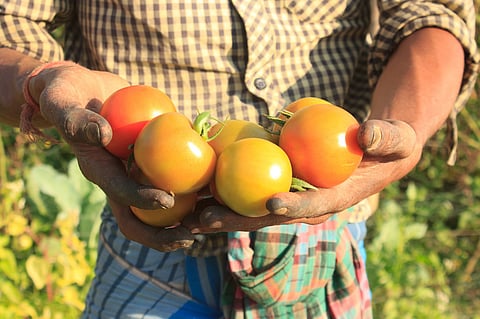

“Sustainable agriculture enhances the resilience of both farmers and farming, while farmer producer organisations (FPOs) can be an important vehicle for promoting them,” says Yogesh Dwivedi, chief executive officer of Madhya Bharat Consortium of Farmer Producers Company Limited. The role of FPOs is particularly important in India’s agricultural sector, which is dominated by small and marginal farmers. These farmers produce 70 per cent of vegetables and over 50 per cent of fruits and cereals but face challenges in marketing their produce due to lengthy supply chains, poor value addition and lack of economies of scale. Both the Union and state governments have therefore been promoting formation of FPOs. The efforts have culminated in a 2020 scheme to establish and promote 10,000 FPOs by 2027-28, with a budget of Rs 6,865 crore. In 2023, the Union Ministry of Cooperation launched National Cooperative Organics Limited (NCOL) to bolster the marketing of organic produce through cooperatives. It has also launched a brand, “Bharat Organics”, and aims to share up to 50 per cent of profits with farmers. While promising, the success of this initiative remains to be seen.
Despite their potential, FPOs face challenges like inadequate working capital, lack of human resources with business acumen and regulatory compliance. “Banks hesitate to offer loan to FPOs due to farmers’ low collateral power,” says Dwivedi. Compliance with complex regulations like GST (goods and services tax) is challenging, as FPOs often lack human resources with business acumen; low compensation fails to attract a talented resource pool. Absence of a nodal agency for FPOs makes things even murkier. The Union agriculture ministry seems to have taken a note of these concerns, as evident in its draft National Policy on Farmer Producer Organizations put up for public comment in June 2024.
Apart from FPOs, the government can play a key role in connecting organic farmers to markets. States like Karnataka, Odisha and Uttarakhand already procure organic produce and link it with the public distribution system and the Integrated Child Development Scheme.
To ensure that farmers get assured price for their produce, the government should introduce minimum support price (MSP) for all crops under a legal framework, says agriculture expert Devinder Sharma. It makes sense as the current MSP system, which primarily supports wheat and rice, promotes monoculture, strains water resources, and reduces crop diversity which impacts farmer’s resilience. Some states are taking proactive steps. Haryana’s “Mera Pani Meri Virasat” scheme incentivises crop diversification and has a provision to procure diversified produce under MSP. Odisha’s Millet Mission, which aims for nutritional security and sustainable agriculture, promotes millet cultivation with incentives and procurement guarantee. Karnataka’s Raitha Siri promotes millets, pulses and oilseeds through incentives and procurement support, with an emphasis on organic farming.